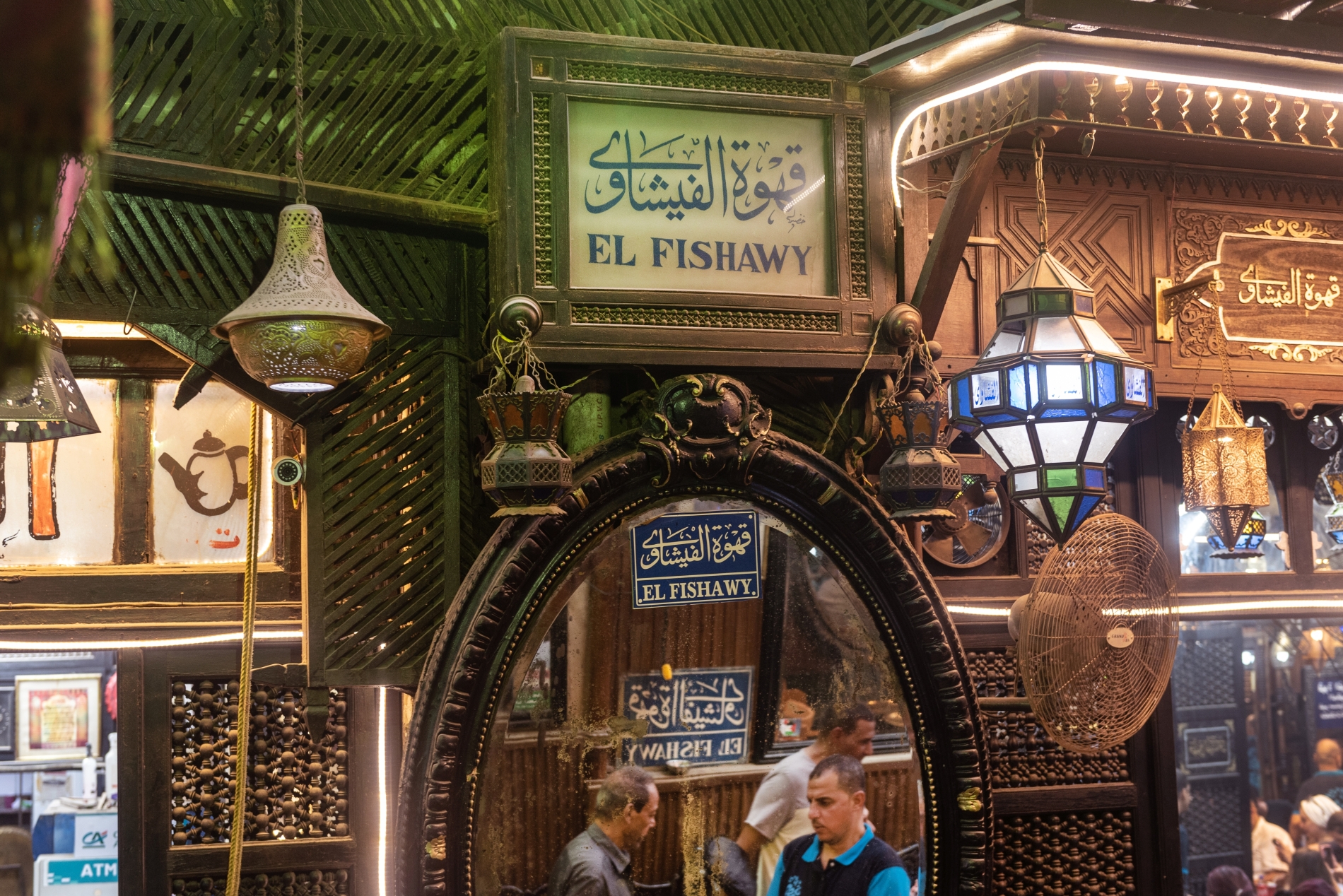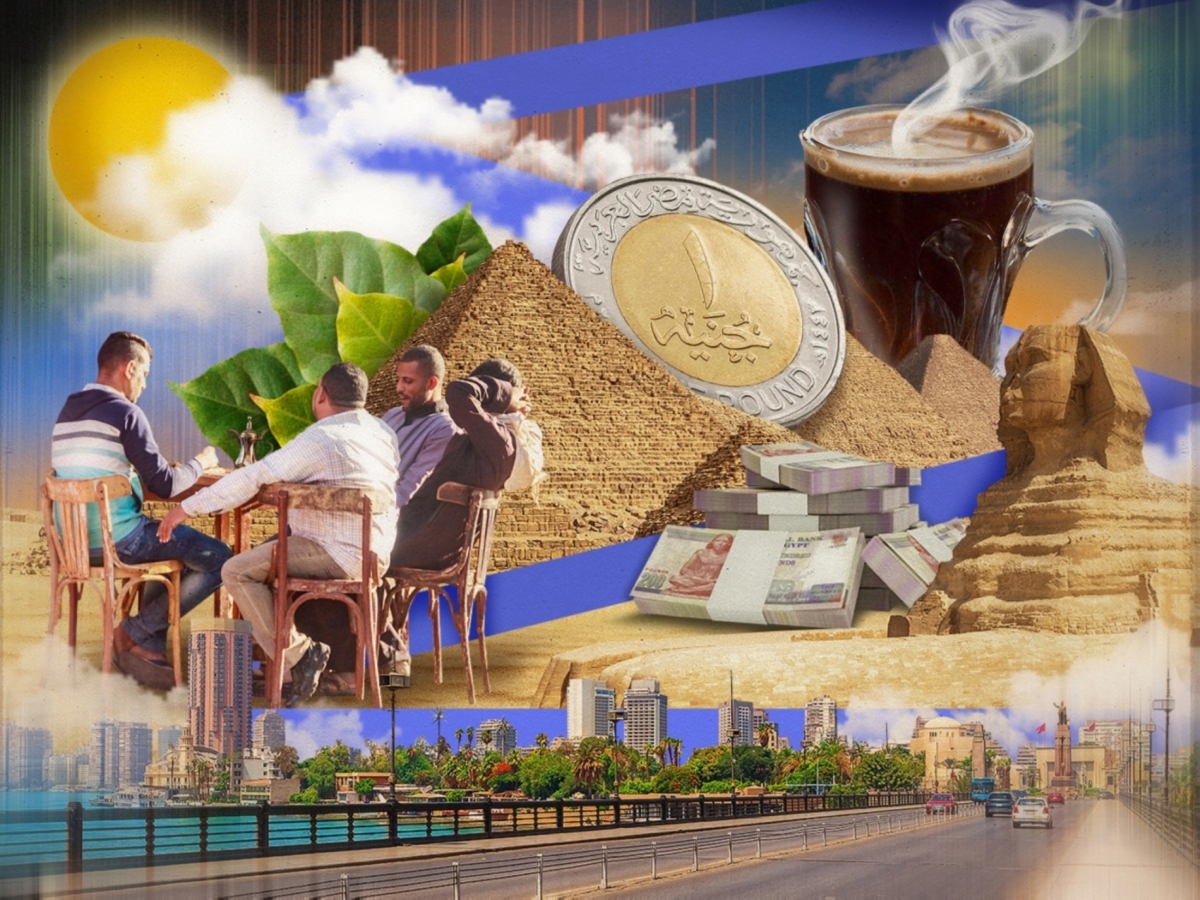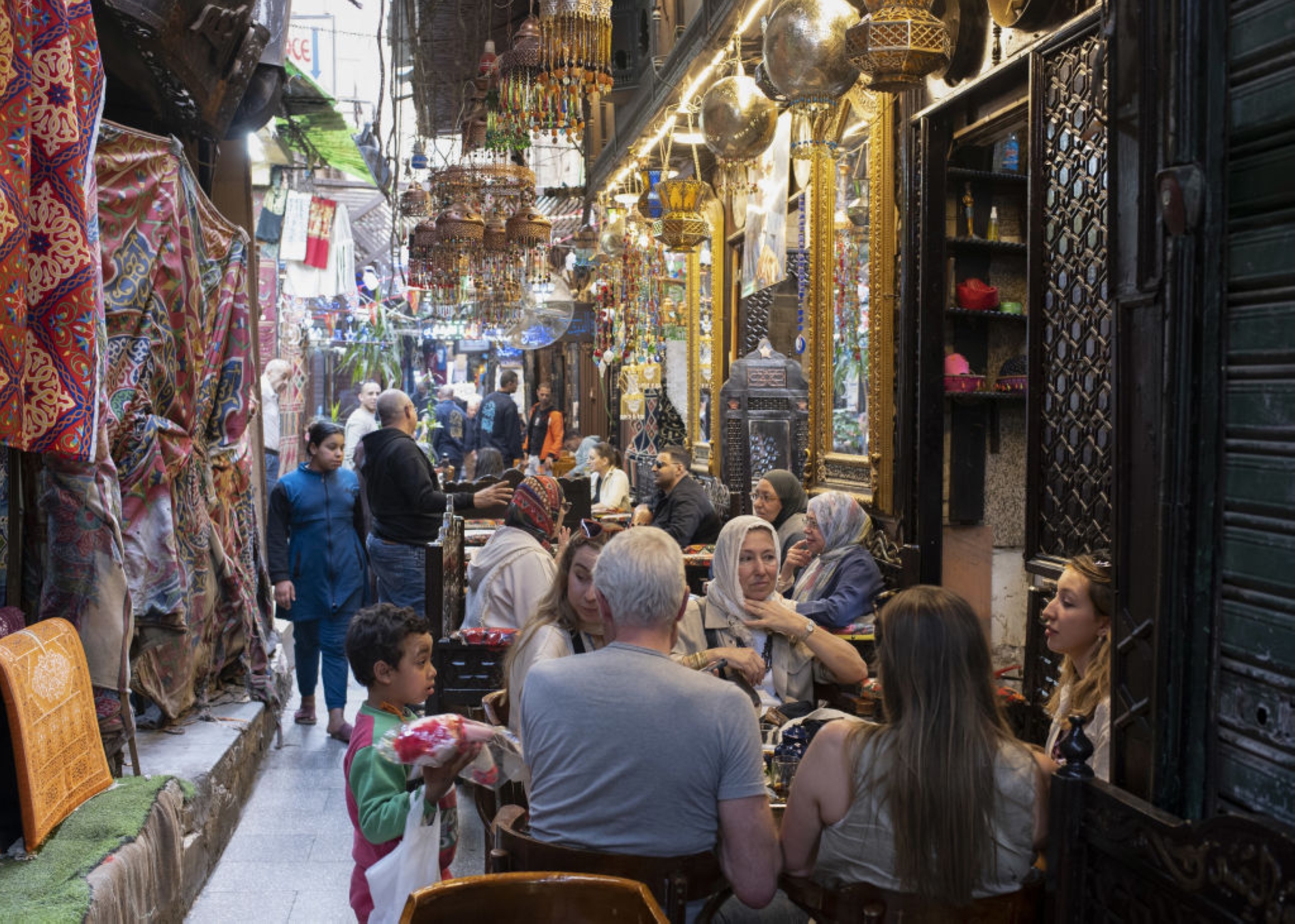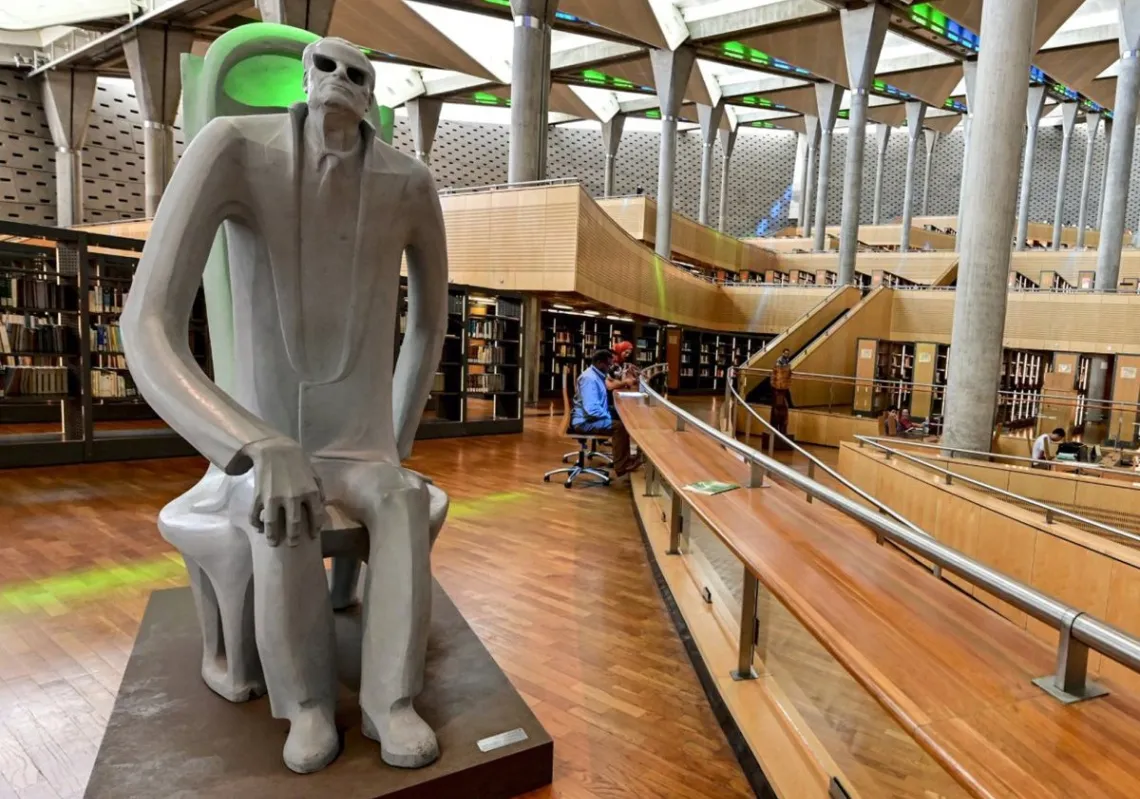The café sector in Egypt is experiencing a remarkable boom, despite mounting economic challenges, with inflation driving up the cost of both drinks and rent. This resilience highlights how cafés have become a defining feature of everyday life for Egyptians, who view them as spaces where leisure and work converge, where youth-led enterprise thrives, and where generations come together.
From the traditional ahwa (coffeehouse) tucked down side streets to the modern café sprouting beneath flyovers, a new economy is emerging, one that reflects the country’s shifts in culture, behaviour, and consumption patterns. Cafés are also riding a resurgence in tourism, triggering a new symbiotic relationship. In Cairo today, not a single neighbourhood or alleyway is without somewhere to sit and drink coffee.
Egypt’s economic crisis is deepening, but many Egyptians still prefer to gather at café tables, even if it means cutting back in other areas. “There’s nowhere else for us to relax or meet friends,” says Youssef Onsi, a government employee in his 40s. “Sports clubs are no longer affordable, and homes aren’t always suitable for gatherings.”
Egypt’s annual inflation rate fell to 12% last month, from 16.5% in May, but this is still high. The price of tea and cocoa rose by a slightly gentler 6.5% but soft drinks and juices jumped by 18.9%. Still, cafés continue to draw crowds, and in some areas, patronage is on the rise, reflecting a psychological and social bond with the café, which is seen as a place to escape life’s daily pressures.

Locals and tourists
From local hangouts, cafés have slowly become part of Egypt’s tourism fabric. The country welcomed around 8.7 million visitors in the first half of 2025 (up 24% on the same period last year), and the boom has spurred demand for café services, particularly in areas of interest to tourists such as Khan El-Khalili, Al-Muizz Street, Old Cairo, and around museums. Some cafés are even tourist destinations in their own right, such as Naguib Mahfouz Café, or the heritage cafés of Al-Muizz Street, which blend Fatimid architecture with a traditional Eastern coffee experience.
“Café tourism exists in many countries like France and Italy, where cafés are intertwined with tourist landmarks,” says Dr Magdy Sleem, who specialises in tourism. “Egypt has unique touristic assets that can foster this model, especially in historic Cairo, Alexandria, Aswan, and Luxor.”
With Greater Cairo's urban sprawl and the rapid expansion of bridges in the city, under-bridge cafés and restaurants have sprung up, as they have in car parks and neglected spaces, where buildings are repurposed to utilise wasted space. Yet alongside this are concerns over pollution, safety, and traffic congestion in a city that lacks pedestrian pathways.
Cafés under bridges cause obvious traffic disruption because they are set up in spaces never intended for such ventures, say engineers. For some, the spread of café culture has affected their quality of life. One resident of Nasr City, who asked to speak anonymously, said: "We can't sleep at night because of the blaring music and noise from a café under the nearby bridge. Our lives have become unbearable."













